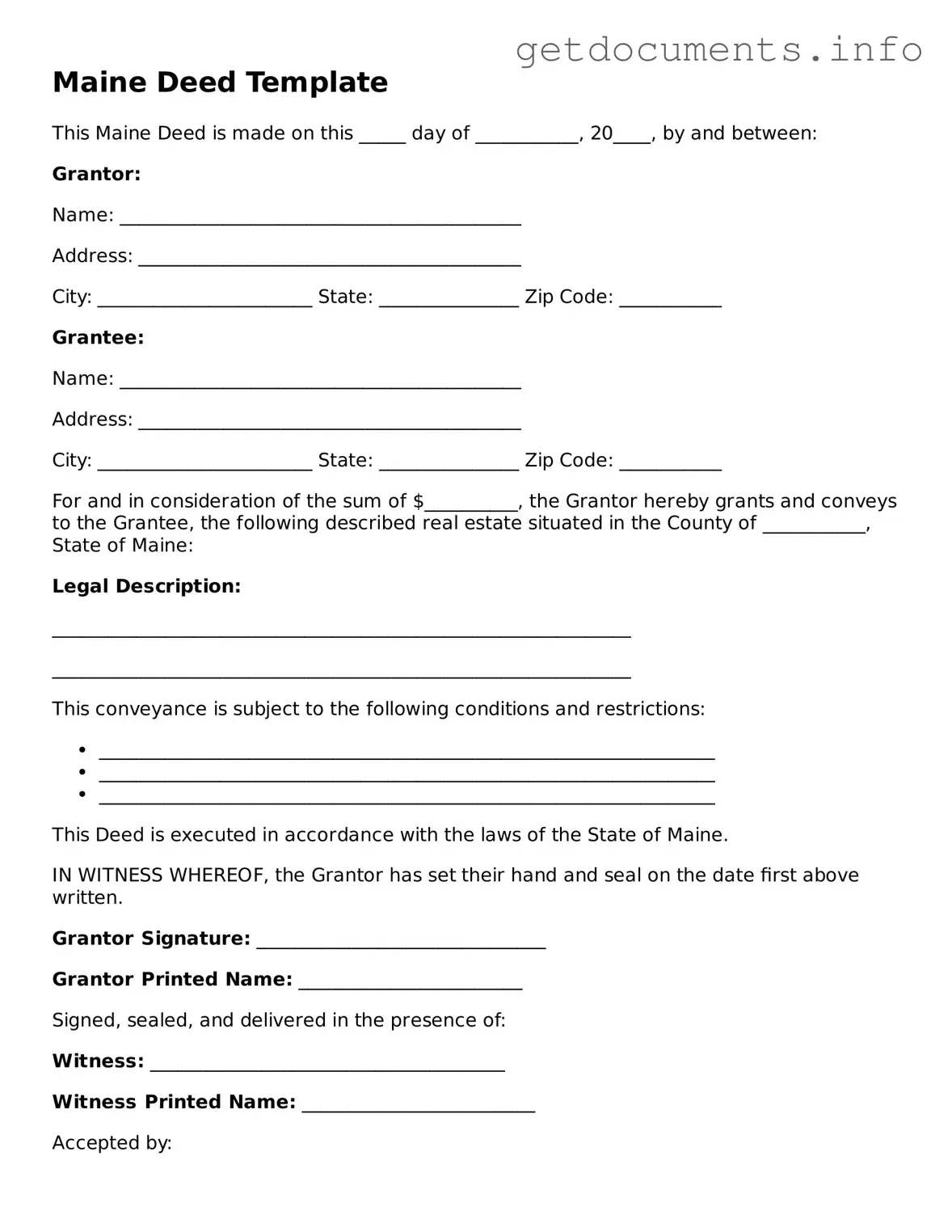Free Deed Template for Maine
The Maine Deed form is a legal document used to transfer ownership of real property in the state of Maine. This form outlines the details of the transaction, including the parties involved and the property description. For those looking to complete a property transfer, filling out the Maine Deed form is an essential step—click the button below to get started.
Access Deed Editor

Free Deed Template for Maine
Access Deed Editor
Got places to be? Complete the form fast
Fill out Deed online and avoid printing or scanning.
Access Deed Editor
or
⇩ PDF File
